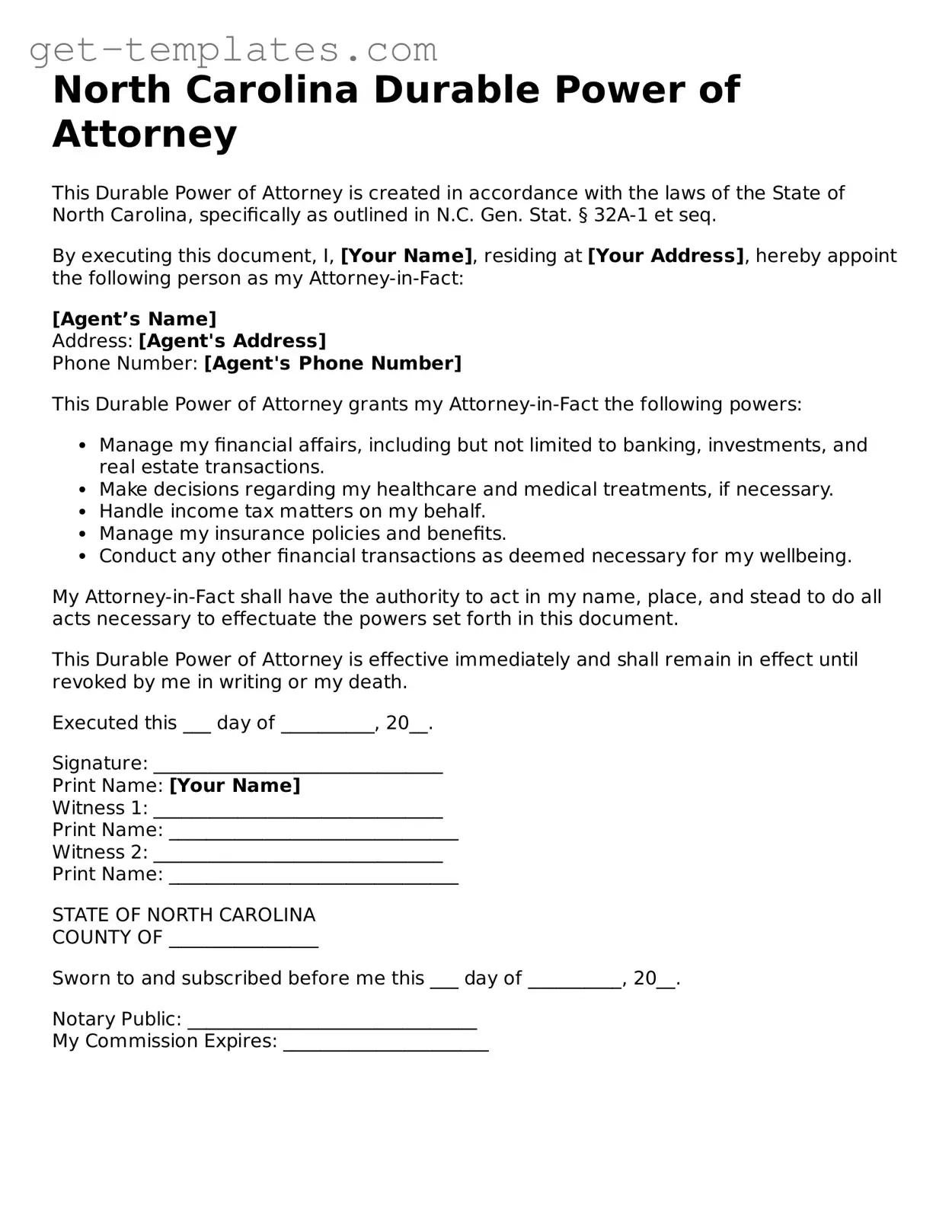Attorney-Approved Durable Power of Attorney Document for North Carolina
A North Carolina Durable Power of Attorney form is a legal document that allows an individual, known as the principal, to appoint someone else, referred to as the agent, to make decisions on their behalf. This form remains effective even if the principal becomes incapacitated, ensuring that their financial and legal matters are managed according to their wishes. Understanding its importance can help individuals plan for the future with confidence.
Get Document Online

Attorney-Approved Durable Power of Attorney Document for North Carolina
Get Document Online
You’re halfway through — finish the form
Finish Durable Power of Attorney online — edit, save, download made easy.
Get Document Online
or
⇓ PDF Form
